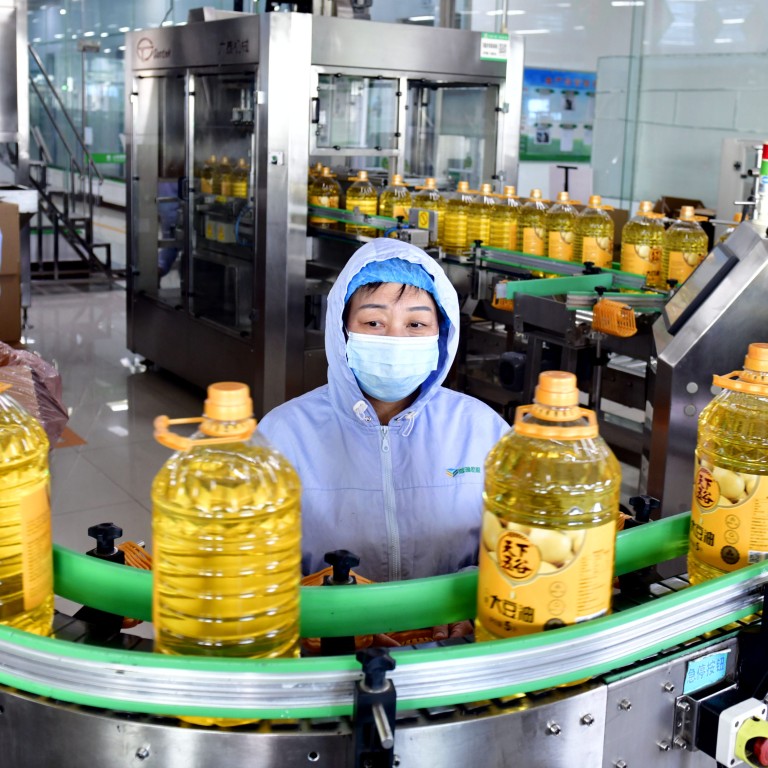
China’s focus on environmental problems in its food industry is set to only accelerate after passing an initial carbon reduction goal in 2030, with food security set to remain a priority in the short term, according to a new report.
But after China achieves its stated goal of reaching peak carbon dioxide emissions across all sectors before 2030, it would likely double down on reforms, said Even Pay, an agriculture analyst with Trivium China, the author of the report commissioned by the New Zealand China Council.
“China doesn’t need agricultural help before that year,” Pay told a webinar on Monday.
But leading up to 2060, when China aims to achieve carbon neutrality, it would likely be different, she said.
China can be expected to delay highly ambitious, costly, or punitive regulatory efforts
Tasting the future: China’s Sustainable Protein Outlook
“Once China tries to pursue neutrality it will need the agricultural sector to contribute to that goal,” she added.
Emissions from the agricultural sector are not being built into China’s plans to reach peak greenhouse gas emissions before 2030, said the “Tasting the future: China’s Sustainable Protein Outlook” report.
“China can be expected to delay highly ambitious, costly, or punitive regulatory efforts to deliver on agricultural sustainability goals at least until 2030, and likely beyond – seeking to ensure an ample, stable, and affordable supply of key food products first, and pursue sustainability as a second priority,” the report said.
China would put food security ahead of environmental concerns, aside from “visible” issues such as agrochemical run-off and water pollution from livestock waste, it added.
“Where the two are at odds, food security will be prioritised over sustainability,” the report added.
Officials have said China’s grain reserves remain healthy, but overall food self-sufficiency has dropped since 2000 – exacerbated by war in Ukraine and supply chain disruptions.
But food and food packaging waste are among the key environmental issues, the report said, while China’s plan for methane emissions lacks specific targets and is “extremely unambitious”.
The plan, which was announced in 2021, is focused on methane released during coal mining and oil and gas drilling, rather than agricultural emissions.
In 2021, the National Development and Reform Commission and Ministry of Ecology and Environment also introduced a five-year plan focused on pollution caused by plastics.
Food importers, particularly those based in New Zealand where the industry has undergone sustainability reforms, faces a crucial test over the next few years, participants told Monday’s webinar.
New Zealand ships milk powder, butter, cheese and meat to China, with imports across all sectors hitting US$16 billion last year, according to Chinese customs.
And with China nearly a decade away from translating its ambitious climate policy into strict targets for the agri-food sector “New Zealand should continue to take action to hone value propositions while we still have a head start”, the report said.
Just two Chinese food companies have voluntarily stepped up environmental safeguards, Pay said.
[Exporters] have always understood that China needs to buy a lot of food from the rest of the world
James Chin
China represents significant potential for businesses from New Zealand and Australia because the large consumer market lacks certain foods, said James Chin, a professor of Asian studies at the University of Tasmania.
“[Exporters] have always understood that China needs to buy a lot of food from the rest of the world,” Chin said.
But when it steps up oversight on food-related environmental issues, the sector would change fast for foreign firms, said Christiana Zhu, CEO of New Zealand’s Marvelous Foods, which makes plant-based dairy products.
China might add food safety protections, improve nutrition requirements or cut packaging waste, the report said.
“When it changes, it changes at China speed,” Zhu told the webinar.
News Related